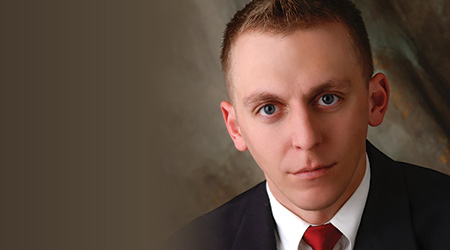
I turned 40 years old last month. And after some ribbing from friends and the semi-existential crisis that comes with the milestone, I became a bit reflective about my career.
When I started in the cleaning industry, I had just turned 27. I was often one of the youngest people in every room and, therefore, didn’t take it too personally when I was told to “shut up and learn” by my professional elders. It took about 5 years, and a couple professional flubs, to be respected and graduate from the silent kid to qualified contributor.
So here I am now, 40, and I can’t help but notice that I’m still among the youngest of professionals in the industry. This is a huge concern.
The workforce within our industry has continued to age, without a real discernible youth movement. That goes for front-line cleaning workers, supervisors, managers, as well as executives. Furthermore, it seems to go hand-in-hand with one of the profession’s oldest problems: retention of personnel.
So, we take an aging workforce, a high turnover rate and an industry that has trouble attracting and keeping young talent — it is a perfect storm. Which begs the question that I frequently hear — what can we do to make the profession attractive enough to keep current employees and bring in young talent?
I believe it all boils down to one thing — industry-specific, professional education.
It’s time that we start seriously asking ourselves, “What can we do as an industry to educate, retain and prepare the next generation?” From my humble perspective, the gaping hole in this industry is the lack of formal, functional, meaningful education and training programs that will prepare the next generation of professionals. However, when we talk about education, we need to decide as an industry what that actually means.
By and large, professional education in this industry has historically come from two sources: manufacturer-based training and distributor-based training. Manufacturers usually focus on individual products with varied real world applications. Distributors tend to be varied in their training techniques. This is not an indictment — it’s just the way things are.
The problem with both approaches is that they tend to become obsolete rather quickly — either product lines change or there are changes in the prejudice of distributor salespeople. This has left the end user to fend for themselves and develop homegrown training based on their specific operation. All the while, most custodial managers are spread so thin that updating training materials and delivering them is a nearly impossible task.
So what’s the solution?
The most attractive professions tend to be the ones with opportunity for advancement, continuous learning and ongoing evolution. We need to come together and agree upon standard skill set training for management down to the front-line cleaning worker; safety education that reduces the overall risk to the profession; a curriculum that is regularly evaluated by stakeholders; testing that effectively measures learning outcomes; and valid, professional certificate programs that focus on continuous improvement and learning.
It is not a small task, nor one that will be accomplished overnight. However, if we don’t start, we’ll continue to watch the revolving door of talent, and miss the opportunities to advance the profession.
Ben Walker is the Director of Business Development for ManageMen, Inc., a leading cleaning industry consultancy specializing in training, transitions, auditing and educational materials. In addition to his consulting work, Walker is the author of ISSA’s best selling book: 612 Cleaning Times and Tasks.

 The Down and Dirty on Cleaning in Virus Season
The Down and Dirty on Cleaning in Virus Season How Surfactant Use is Expanding in Commercial Cleaning
How Surfactant Use is Expanding in Commercial Cleaning Operational Excellence Series 2025: Better Budgeting
Operational Excellence Series 2025: Better Budgeting